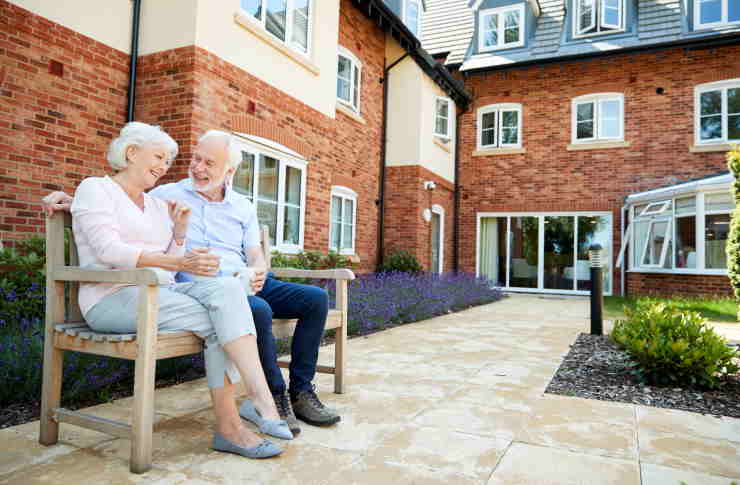Elder Cottages: Revolutionizing Family Care
Discover how elder cottages, compact living spaces built on family properties, are transforming senior care. These innovative dwellings offer a perfect blend of independence and proximity for aging loved ones, providing a cost-effective alternative to traditional care facilities. Learn about their features, benefits, and considerations in this comprehensive guide to modern multigenerational living solutions.

Elder Cottages: The Future of Family-Centered Senior Living
Reimagining Senior Care with Backyard Dwellings
As our population ages, families are seeking innovative ways to care for their elderly relatives while maintaining independence and dignity. Enter elder cottages – compact, self-contained living spaces that are revolutionizing the concept of aging in place. These purpose-built dwellings, often referred to as accessory dwelling units (ADUs) or in-law suites, offer a unique solution to the challenges of multigenerational living.
The Advantages of Elder Cottages
For Seniors:
- Preserved autonomy
- Familiar surroundings
- Easy access to family support
- Customized living environment
For Families:
- Peace of mind with proximity
- Reduced long-term care costs
- Strengthened family bonds
- Flexible future use of the space
Designing for Comfort and Safety
Elder cottages are meticulously crafted with the needs of older adults in mind. Key design elements include:
- Barrier-free entryways and wide corridors for mobility aids
- Strategically placed support rails and anti-slip flooring
- Ergonomic kitchen designs with accessible appliances
- Smart home integration for health monitoring and security
- Optimized lighting and temperature control systems
- Direct communication links to the main house
These thoughtful features create a living space that’s not just accessible, but truly comfortable and conducive to independent living.
Navigating the Construction Process
Building an elder cottage requires careful planning and adherence to local regulations. Here’s what you need to consider:
- Zoning laws and property restrictions
- Building permits and inspections
- Utility connections and infrastructure
- Accessibility standards compliance
- Future adaptability of the structure
- Environmental impact and energy efficiency
Collaborating with architects and contractors experienced in ADU construction is crucial for navigating these complexities effectively.
Investment and Cost Considerations
The financial aspect of building an elder cottage varies based on several factors. Here’s a general cost breakdown:
| Cottage Size | Basic Amenities | Premium Features | Estimated Range |
|---|---|---|---|
| Small (300-400 sq ft) | $45,000-$85,000 | $85,000-$130,000 | $65,000-$110,000 |
| Medium (400-600 sq ft) | $65,000-$125,000 | $125,000-$210,000 | $95,000-$170,000 |
| Large (600-800 sq ft) | $85,000-$170,000 | $170,000-$260,000 | $130,000-$215,000 |
Note: These figures are estimates and may fluctuate based on location, materials, and market conditions. It’s advisable to obtain multiple quotes and conduct thorough research before making financial commitments.
Exploring Alternative Solutions
While elder cottages offer numerous benefits, they’re not the only option for family-centered senior care. Consider these alternatives:
- Home Adaptations: Modifying the existing family home to accommodate changing needs.
- Annexed Spaces: Converting part of the main house into a separate, but connected, living area.
- Prefabricated Units: Factory-built structures that can be quickly installed on-site.
- Mobile Tiny Homes: Compact, portable dwellings that offer flexibility in placement.
Each option has its merits and drawbacks, and the ideal choice depends on individual family dynamics, financial resources, and local regulations.
Embracing the Future of Family Care
As we move forward, elder cottages and similar innovative living solutions are poised to play a crucial role in addressing the challenges of an aging population. These dwellings not only provide a practical housing option but also foster intergenerational connections and support aging with dignity.
By offering a balance between independence and family support, elder cottages represent a promising approach to senior care that aligns with changing societal values and family structures. As this trend continues to evolve, we can expect to see more creative and personalized solutions emerging to meet the diverse needs of seniors and their families.
In conclusion, elder cottages offer a compelling vision for the future of senior living – one that prioritizes family bonds, individual autonomy, and quality of life. As we continue to reimagine care for our aging loved ones, these innovative dwellings stand out as a testament to the power of thoughtful design and family-centered solutions.






